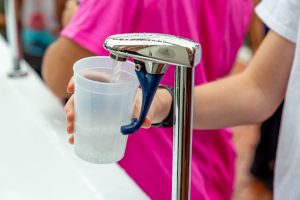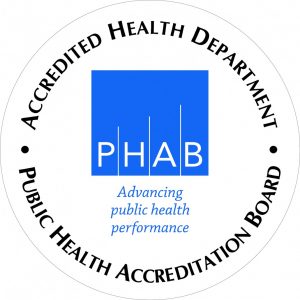You should know the water you are drinking is safe!

For many of us, it is simply knowing that we are on a public water supply that is monitored by the EPA. For those of us that own a well, we need to protect our well. This article is intended to help raise awareness of the importance of protecting your well head from contamination and the importance of testing the well on a regular basis, (ie annually), after heavy rains, etc.
There are several ways a well can become contaminated. There may be several wells on the same water aquifer. If one well cap is missing or cracked, insects, rodents etc can fall down into the well, thereby contaminating the aquifer. Remember, the well casing is a direct opening to the water aquifer below and anything that goes down it will end up in the water below. If the aquifer gets contaminated, all those sharing the same aquifer can have contaminated water.
The age of the well may also play a part in contamination of the water aquifer. If the casing is old and becomes cracked, or if the connection for the water line is not done properly or becomes cracked, contaminants from the ground can get into the well water. If there is a septic system with a crack in the tank or line, it can flow towards the well, especially if the well is close and there is flooding or heavy rains. The well should be at least 50 feet away from the septic system.
For more about private wells from the Ohio Department of Health, click here
When should you sanitize your well?
You should sanitize your well if you have had a loss in water pressure, if you have had plumbing work done, or if your well casing has been under water due to flooding. In each case, bacteria could enter your water system and contaminate your drinking water. If you are not comfortable conducting this process yourself, contact a registered private water system contractor.
For more information on disinfection of a well after flooding, click here.
Getting your well tested
If you would like the Health Department to test your well, the fee is $80 and should be paid prior to scheduling the water sample. It only takes about 15 minutes. We prefer to collect the sample from the pressure tank, but if there is not a sample port, it can be collected from a nearby fixture. Outside spigots are not acceptable due to the greater chance of contamination from the outside environment.
We will screen the water for nitrates which could indicate contamination from things like fertilizer on nearby farm fields. We will then collect a sample and take it to a certified laboratory to test the water for Total Coliform bacteria and E. Coli. If you get a positive result above a certain number, it only means your well could contain harmful bacteria and should be sanitized and resampled. If you still get a bad number, there may be an issue with your well and a reputable well contractor should be contacted to evaluate the condition of the well.

